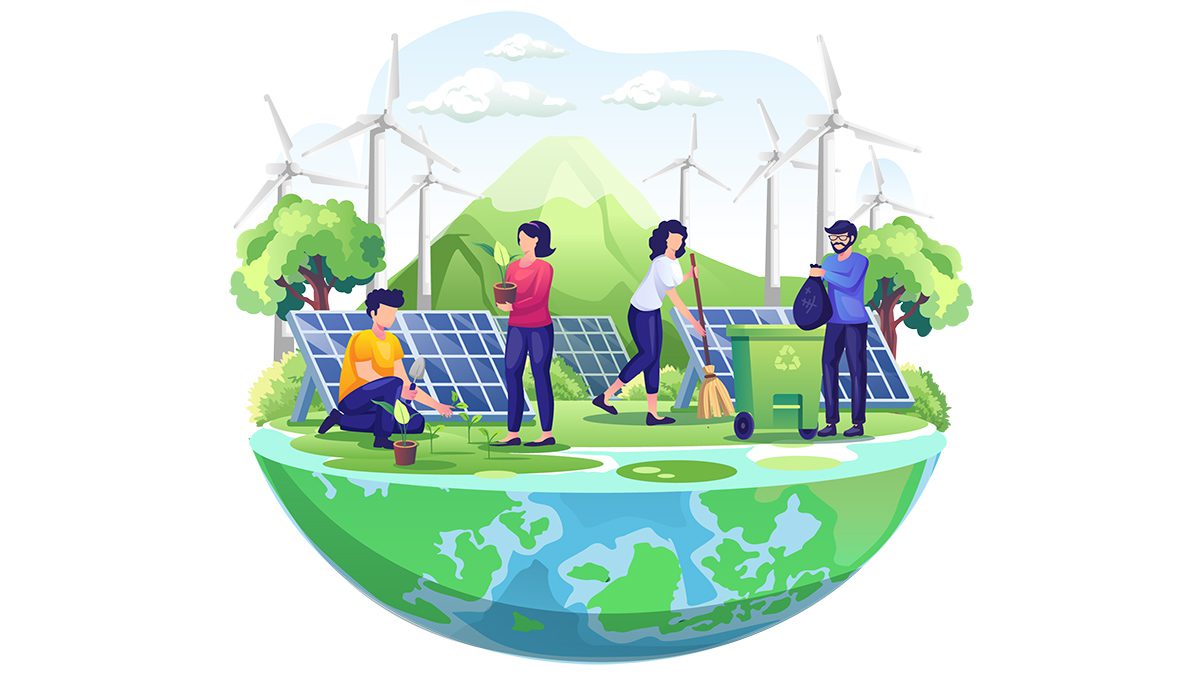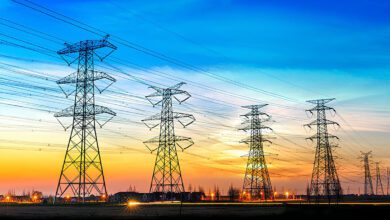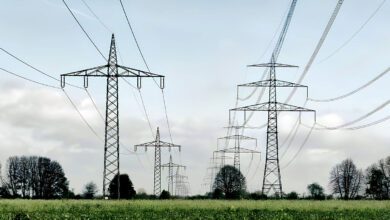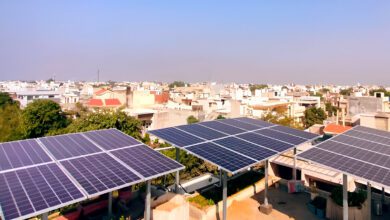India today joins the world in commemorating the 50th anniversary of World Environment Day. This day serves as a compelling reminder to the critical importance of addressing environmental concerns and promoting sustainable development. In keeping with this year’s theme, Ecosystem Restoration, India recognises the critical necessity of restoring ecosystems and conserving the environment in order to ensure a sustainable future.
India’s environmental concern is strongly rooted in its cultural ethos and historical regard for nature. The issue of ecosystem restoration is closely related to the country’s environmental goals. Plastic pollution is recognised as a huge environmental concern, endangering ecosystems and harming animals and human health. With its large population and rising urbanisation, India has the enormous job of effectively managing plastic trash.
Several projects have been launched by the government to reduce plastic pollution and restore ecosystems. The Swachh Bharat Abhiyan (Clean India Mission) and the Plastic Trash Management Rules have played an important role in encouraging cleanliness, trash segregation, and recycling practises throughout the country. These initiatives seek to limit plastic trash output, promote responsible consumption, and create a circular economy that reduces plastic pollution.
In line with Ecosystem Restoration, the country has been actively involved in river and coastal clean-up campaigns to remove plastic garbage and restore the health of water bodies. The Namami Gange programme, which aims to revitalise the sacred Ganges River and its tributaries, is one of the most noteworthy undertakings. Under the programme, 99 sewage projects were completed in the states of Uttarakhand, Uttar Pradesh, Bihar, Jharkhand, West Bengal, Delhi, Himachal Pradesh, Haryana, and Rajasthan. Plantation has been carried out in 26,764 ha. area under Namami Gange scheme by the State forest departments. The long-term vision includes restoration of viable populations of all endemic and endangered biodiversity of the river. The initiative has already seen encouraging results in the river’s biodiversity using this multifaceted approach of pollution control measures, garbage management and afforestation.
India’s impressive successes in renewable energy deployment have been critical in the country’s quest for sustainability. The country has set high renewable energy generation targets, aiming to reach 500 gigatonnes (GW) of renewable energy capacity by 2030. India has emerged as a global leader in renewable energy adoption, with a heavy emphasis on solar and wind power.
On the occasion of World Environment Day, Kishan Karunakaran, CEO of Buyofuel, said, “World Environment Day is a reminder of our duty to safeguard the planet and build a sustainable future for all. In the face of escalating environmental challenges, the need of the hour is to leverage technology and innovation to combat climate change and come up with sustainable energy solutions. Transitioning to renewables is encouraging, but this is just the beginning. I believe now is the time to tap into the vast potential of biofuels. For a country like India, which is blessed with abundant biofuel resources, it is imperative that we ramp up our reliance on this renewable energy source, not only to reduce our carbon footprint but also to reduce our dependence on finite fossil fuels.”
Solar energy has grown rapidly in India, thanks to favourable government policies and incentives. The country already has more than 67 GW of solar capacity, making it one of the world’s largest solar energy markets. Initiatives like the Jawaharlal Nehru National Solar Mission and the Solar Parks programme have helped increase solar infrastructure and attract investment. The “One Sun, One World, One Grid” effort, which aims to connect solar power generation across borders for maximum utilisation of renewable resources, underscores India’s commitment to solar energy.
Wind energy has also evolved into an important component of the renewable energy landscape. In terms of installed wind power capacity, the country ranks fourth globally. Government measures, such as auction-based tariff regimes and wind energy laws, have fuelled expansion in this sector. India’s emphasis on offshore wind farms and hybrid energy systems reflects the country’s dedication to broadening its renewable energy mix and maximising the potential of wind resources.
India’s journey to sustainable energy goes beyond solar and wind power. The government has prioritised electric mobility as a strategy for reducing carbon emissions from the transportation industry. The Faster Adoption and Manufacturing of Electric Vehicles (FAME) programme has been critical in driving electric vehicle adoption and building charging infrastructure across the country. This move not only reduces dependency on fossil fuels, but it also promotes the development of a clean and sustainable transportation ecology.
“World Environment Day serves as a powerful reminder of the need to safeguard our planet from pollution and the devastating effects of climate change. As pioneers in the automated car parking industry, we recognise our responsibility to contribute to global efforts to preserve the environment. Our smart parking systems have a profound and positive impact on reducing carbon emissions and mitigating environmental degradation. Through embracing innovative solutions, we can pave the way for a greener, healthier, and more sustainable future. Together, let us make every day an ‘environment day’ and preserve our planet for generations to come”, said, Rajesh Kabra, MD, RR Parkon.
Across the country, tree planting initiatives, clean-up projects, and awareness programmes are organised to build an environment of environmental responsibility and education. Educational institutions have a critical role in cultivating environmental consciousness among students by imparting conservation and sustainability ideals from an early age.
India’s dedication to renewable energy, sustainability, and ecological restoration extends beyond its borders. The country regularly engages in international partnerships and climate change conferences, where it shares expertise and knowledge in order to address global environmental concerns. India’s leadership in the International Solar Alliance and collaborations with other countries highlight the country’s commitment to global sustainability.
Kunal Nagarkatti, CEO, Clover Infotech, said, “The world has realised the importance of moving to renewable sources of energy. Across all aspects of life, from travel to power consumption to industrial usage and smart cities, there is a very strong thrust on adopting ‘green’ technologies. Our government has introduced many favourable policies to ensure that green technologies are embraced by all. We have been using our resources judiciously and have been designing processes to optimise the consumption of electricity, water, paper, etc. I believe every organisation and individual must leverage the power of new-age digital technologies to accelerate India’s mission of attaining carbon neutrality and creating a more sustainable, equitable, and prosperous future for all.”
India celebrates World Environment Day by renewing its commitment to ecosystem restoration and stepping up efforts to prevent plastic pollution, adoption of renewable energy, and responsible environmental practises. India seeks to restore ecosystems, protect biodiversity, prevent climate change and pave the path for a greener, cleaner, and more sustainable future for all by applying sustainable practises and innovative solutions for a greener and healthier planet for future generations.












